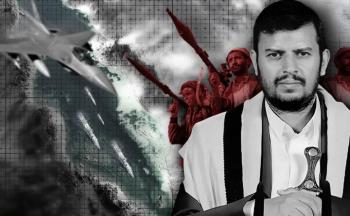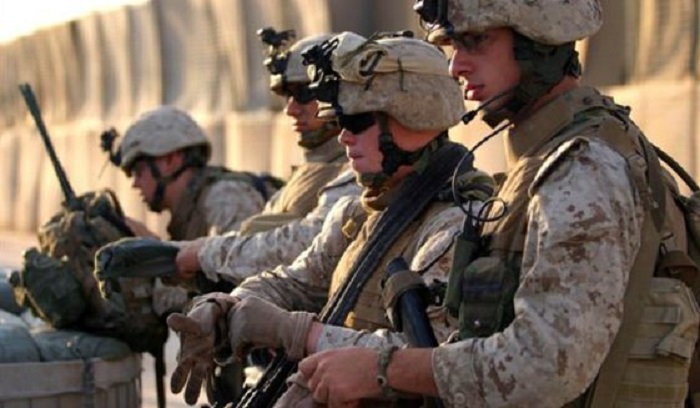Alwaght- The reports on size and quality of the presence of foreign military advisors in Iraq show that the US has 6,500 forces, the largest number of forces in the terror-hit country.
According to Iran's Tasnim news agency, Iraq is stepping in the decisive anti-terror stage of liberation of ISIS-held city of Mosul. During the past two years, the terrorist group has lost control of many cities in Iraq due to joint work of the country's army along with Public Mobilization Forces (PMF), or Al-Hashd al-Shaabi as they are called in Iraq.
Meanwhile, after occupation of Iraq by the US and following ISIS' assaults and formation of the US-led anti-ISIS international military coalition, there was a deployment process of foreign forces to Iraq, with some arriving in the country with Baghdad’s official request while others came with no call from Iraq's officials.
Some part of the following report is extracted from Shafaq news website, shedding light on the number and quality of foreign military forces in Iraq. It is notable that the Iraqi authorities so far declined to deny or confirm the news about the quality and number of the foreign forces in their country.
After ISIS' rise in Iraq and due to all-out shortage of sources in Iraq to face the terrorist group, the Iraqi officials welcomed any foreign plans to battle ISIS in their country. According to field researches, it appears that forces from 14 countries are now active in Iraq for a variety of missions and activities. These countries include the US, Britain, Iran, Australia, Belgium, Canada, Denmark, France, Germany, Italy, Netherlands, Spain, Russia, and Turkey.
- The US: It is said that the American forces under an array of titles are present in 6 military bases in Iraq. The bases are Al-Assad and Al Habbaniyah in western Iraq, Ankawa, and Dohuk in Kurdistan region, as well as Ar Rustamiyah and Al Matar in Baghdad. The number of US forces in Iraq is expected to touch 6500 as fresh 560 forces are set to arrive in Iraq soon. They are active as both advisory and combat forces. Washington also deployed heavy military weapons to Iraq. 80 F-16 and F-18 fighter jets, several Apache helicopters, and 4 Chinook transportation aircraft are part of the US forces' equipment in Iraq.
According to the reports at least one American troop was killed during airborne operations jointly conducted between American and Kurdish forces in Al Hawijah district several months ago. Major task of these forces is announced to be protection of Baghdad’s vital places including the airport, the Green Zone, and the embassy of the US in Iraq which is the largest in the world.
- Islamic Republic of Iran: The reports suggest that Iran has 100 advisors in Iraq. This number is said to include the voluntary forces that go to Iraq to protect the holy Shiite shrines there. The report adds that nearly 50 Iranians were killed in Iraq. It is noted that the Iranian forces are majorly stationed in Baghdad, Diyala, and Salahuddin. Iran uses semi-heavy weapons and short and mid-range missiles. Additionally, Misagh infrared-guided missile and a couple of types of drones are part of the weapons used in fighting ISIS in Iraq.
-Britain: The British forces including 140 advisors and special forces are deployed to Erbil and across Kurdistan region. London uses 8 Tornado fighter jets and a number of surveillance drones for its mission in Iraq.
-Australia: 200 troops in number in Kurdistan region, the Australian forces are majorly tasked with electronic observation of ISIS movements, as well as training the Kurdish forces. Australia also deployed 6 F-18 jets to its mission in Iraq.
-Belgium: Belgium has stationed 120 forces mostly in border areas between Iraq and Jordan, and also in Kurdistan region. They are running intelligence and observation missions to bring under close watch ISIS movements. It also has 6 F-16s in Iraq.
-Canada: Canada has 700 forces responsible for military advisory activities, surveillance, secret intelligence support, and analysis of aerial images taken from ISIS presence sites.
-Denmark: Denmark has 250 forces tasked with training and advisory missions in southwestern Erbil. It has also deployed 7 F-16 fighter jets to Iraq.
-France: France sent 40 forces tasked with military advising, observation, secret intelligence support, and analysis of aerial photos. Paris has 15 Rafale and Mirage fighter jets active in anti-ISIS mission.
-Germany: Berlin sent 71 special forces to Iraq, majorly stationed in Baghdad and Kurdistan region. The key mission of the German forces is training the Iraqi and Kurdish forces how to use foreign weapons.
-Italy: Italian forces are 250 in number, stationed only 30 kilometers away from Mosul. They do a variety of tasks in Iraq, however, their key mission is said to be protection of Mosul Dam.
-Netherlands: It holds 380 military forces in Baghdad and northern Iraq, majorly tasked with training the Iraqi forces military skills. Netherlands uses 6 F-16 fighter jets and Patriot missile defense units.
-Spain: Spain deployed 300 forces to Iraq’s Baghdad and northern areas. The Spanish advisors who have been in the country since US invasion of Iraq, are majorly responsible for military training of Iraqi forces.
-Russia: Russia sent 100 troops to Al Muthanna and Baghdad. Their major duty is advising and intelligence activities in support of PMF. Reports suggest that their main center is in Baghdad’s Green Zone, and they also have a separate building in Al Muthana Airport. Russia also deployed a radar system to Iraq. Earlier, a joint data center was formed in Baghdad between Russian, Iranian, Syrian, and Iraqi forces to coordinate and exchange information between these four anti-ISIS nations. The center was set to be upgraded to an operation center.
-Turkey: Turkey stationed 300 forces in Kurdistan region in northern Iraq. Their main activity is training the Kurdish forces as well as Mosul’s tribal forces. Turkey deployed 100 armored vehicles and 22 tanks to Iraq’s territory. Although the Turkish forces' presence has drawn Baghdad government’s' opposition, and Iraqi officials several times asked Turkish forces out of the country, Ankara argued that its deployment came at the behest of Kurdistan region's officials, and so declined to leave Iraq's north.



























